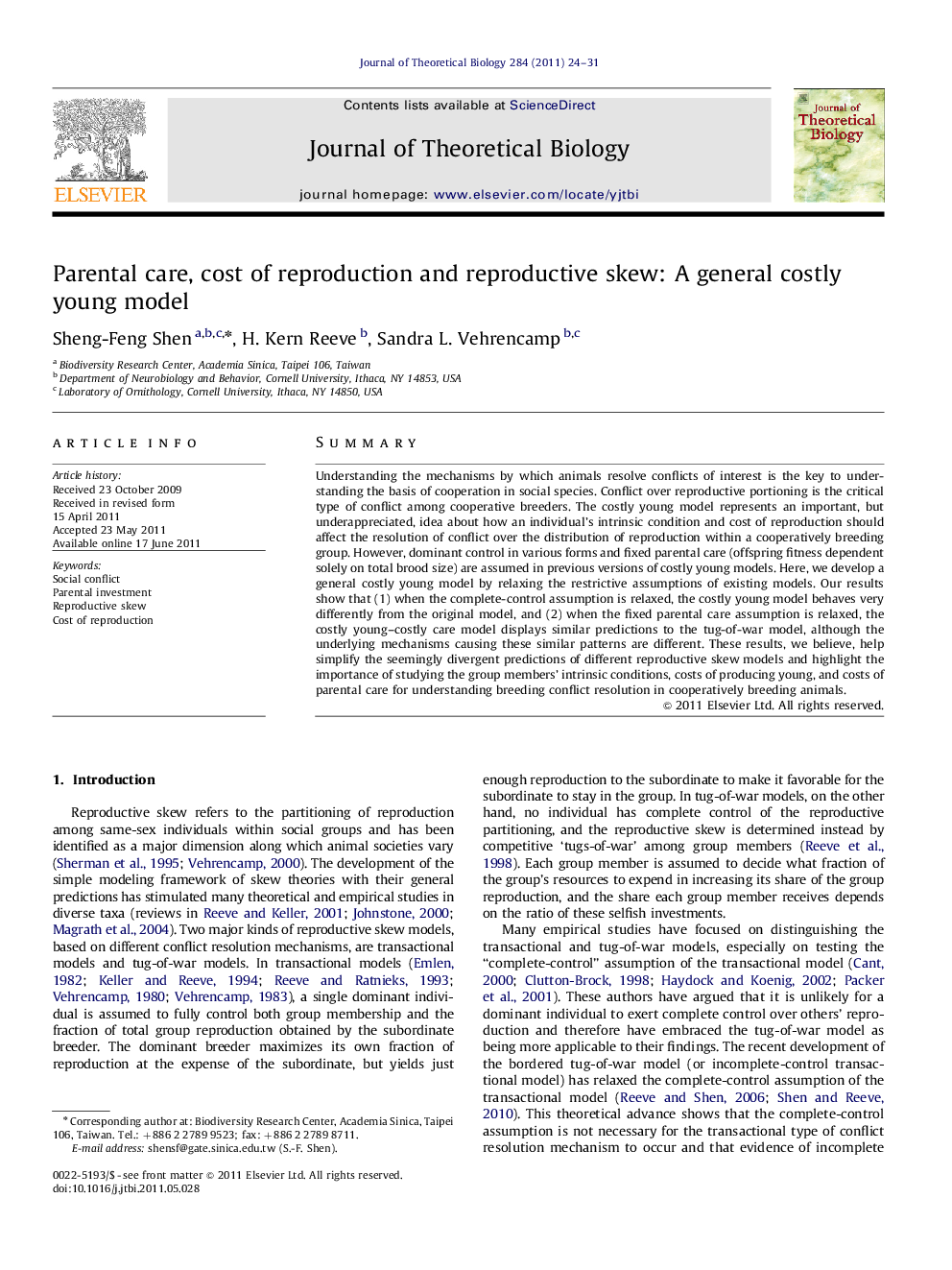| Article ID | Journal | Published Year | Pages | File Type |
|---|---|---|---|---|
| 4496944 | Journal of Theoretical Biology | 2011 | 8 Pages |
SummaryUnderstanding the mechanisms by which animals resolve conflicts of interest is the key to understanding the basis of cooperation in social species. Conflict over reproductive portioning is the critical type of conflict among cooperative breeders. The costly young model represents an important, but underappreciated, idea about how an individual's intrinsic condition and cost of reproduction should affect the resolution of conflict over the distribution of reproduction within a cooperatively breeding group. However, dominant control in various forms and fixed parental care (offspring fitness dependent solely on total brood size) are assumed in previous versions of costly young models. Here, we develop a general costly young model by relaxing the restrictive assumptions of existing models. Our results show that (1) when the complete-control assumption is relaxed, the costly young model behaves very differently from the original model, and (2) when the fixed parental care assumption is relaxed, the costly young–costly care model displays similar predictions to the tug-of-war model, although the underlying mechanisms causing these similar patterns are different. These results, we believe, help simplify the seemingly divergent predictions of different reproductive skew models and highlight the importance of studying the group members' intrinsic conditions, costs of producing young, and costs of parental care for understanding breeding conflict resolution in cooperatively breeding animals.
► Costs of producing and caring young on reproductive skew are simultaneously modeled.► Differential costs of producing and caring young result in complicated care and skew pattern.► Group members' intrinsic condition is an important determinant of skew and caring effort.
